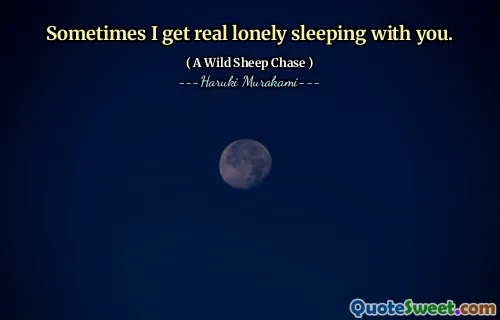There's that kind of money in the world. It aggravates you to have it, makes you miserable to spend it, and you hate yourself when it's gone. And when you hate yourself, you feel like spending money. Except there's no money left. And no hope.
The quote from Haruki Murakami's "A Wild Sheep Chase" reflects a profound ambivalence toward wealth and its impact on happiness. It suggests that possessing significant amounts of money can lead to frustration and dissatisfaction, creating a cycle of misery associated with both having and spending it. The wealth becomes a source of conflict rather than joy, highlighting the emotional toll it takes on a person.
Moreover, the quote indicates that the absence of money can result in feelings of despair and hopelessness, driving one towards self-destructive spending behavior as a coping mechanism. Ultimately, it captures the paradox of wealth, where financial resources do not guarantee happiness, instead often leading to self-loathing and a yearning for more, perpetuating a cycle of unhappiness.






